Lena I. Reed
Generating Sentence Planning Variations for Story Telling
Aug 29, 2017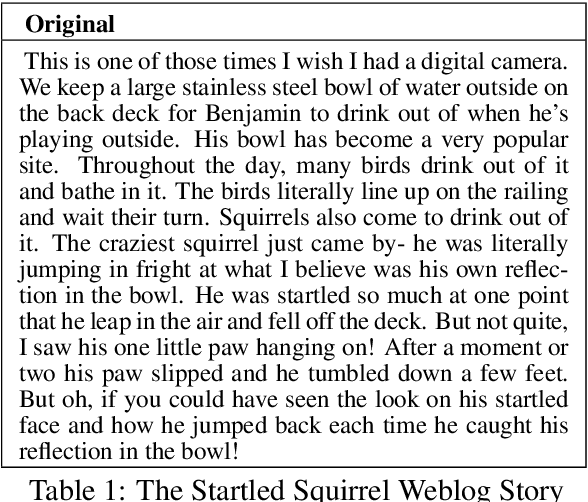
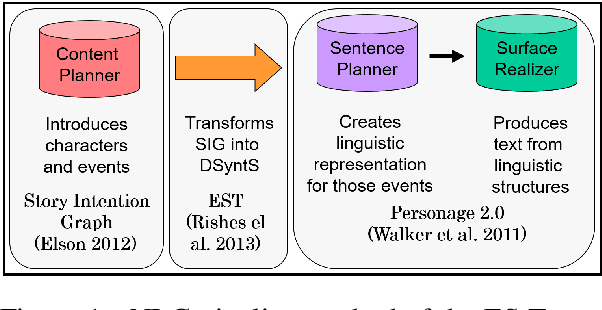
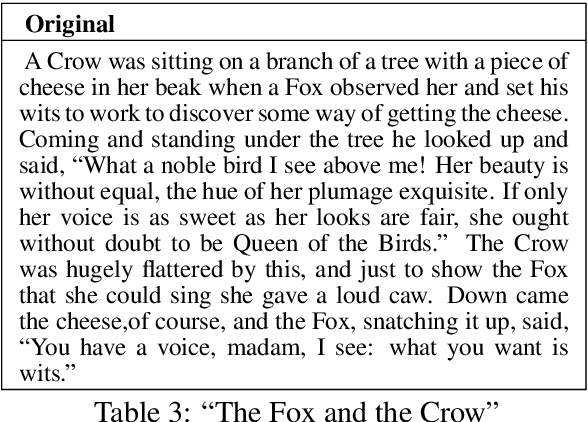
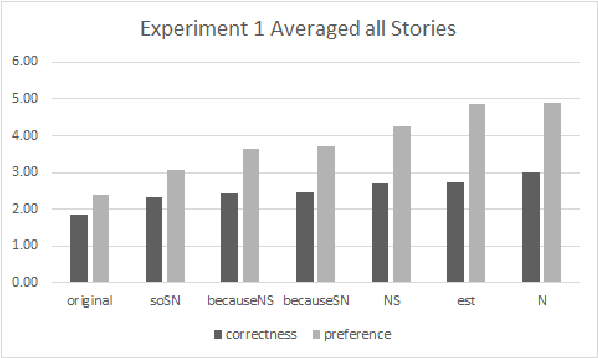
Abstract:There has been a recent explosion in applications for dialogue interaction ranging from direction-giving and tourist information to interactive story systems. Yet the natural language generation (NLG) component for many of these systems remains largely handcrafted. This limitation greatly restricts the range of applications; it also means that it is impossible to take advantage of recent work in expressive and statistical language generation that can dynamically and automatically produce a large number of variations of given content. We propose that a solution to this problem lies in new methods for developing language generation resources. We describe the ES-Translator, a computational language generator that has previously been applied only to fables, and quantitatively evaluate the domain independence of the EST by applying it to personal narratives from weblogs. We then take advantage of recent work on language generation to create a parameterized sentence planner for story generation that provides aggregation operations, variations in discourse and in point of view. Finally, we present a user evaluation of different personal narrative retellings.
M2D: Monolog to Dialog Generation for Conversational Story Telling
Aug 24, 2017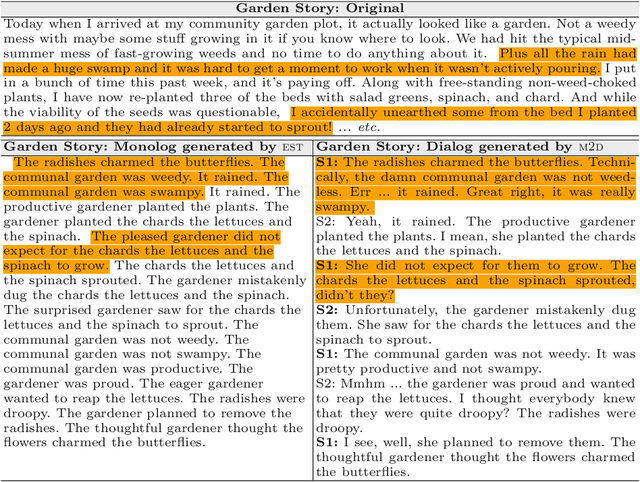
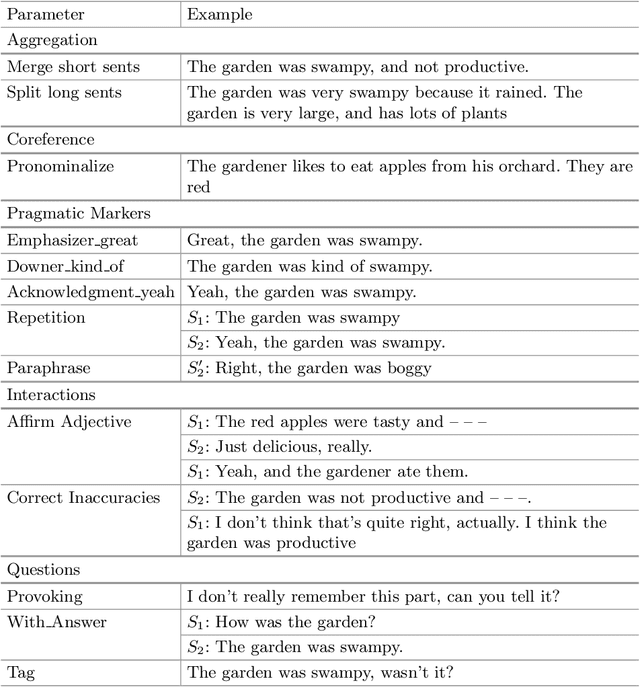
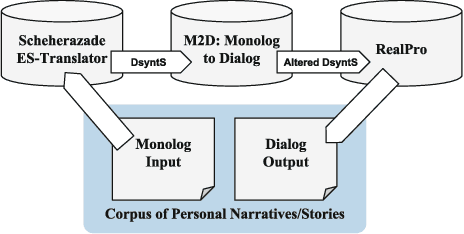
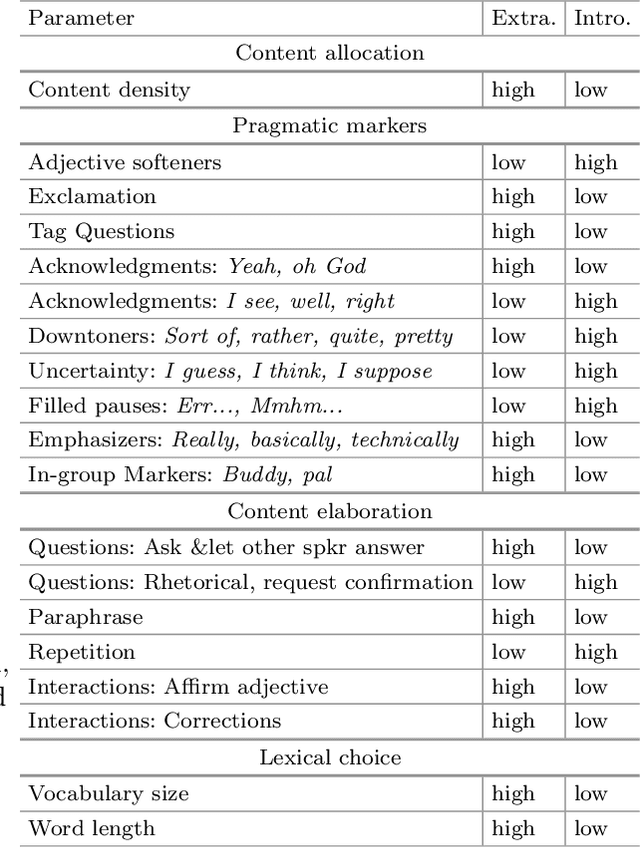
Abstract:Storytelling serves many different social functions, e.g. stories are used to persuade, share troubles, establish shared values, learn social behaviors, and entertain. Moreover, stories are often told conversationally through dialog, and previous work suggests that information provided dialogically is more engaging than when provided in monolog. In this paper, we present algorithms for converting a deep representation of a story into a dialogic storytelling, that can vary aspects of the telling, including the personality of the storytellers. We conduct several experiments to test whether dialogic storytellings are more engaging, and whether automatically generated variants in linguistic form that correspond to personality differences can be recognized in an extended storytelling dialog.
 Add to Chrome
Add to Chrome Add to Firefox
Add to Firefox Add to Edge
Add to Edge